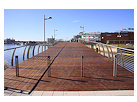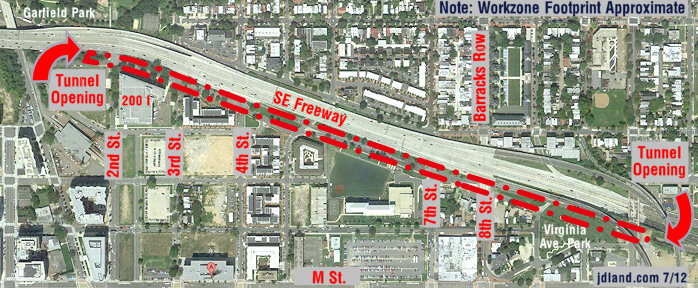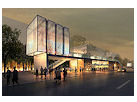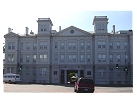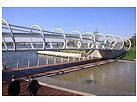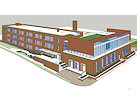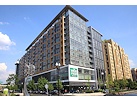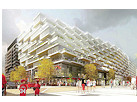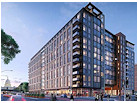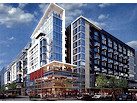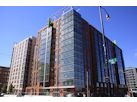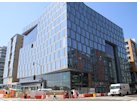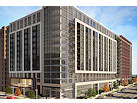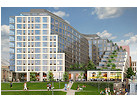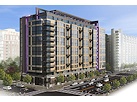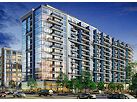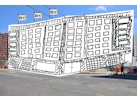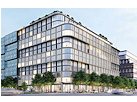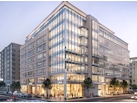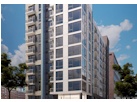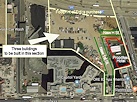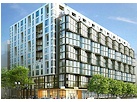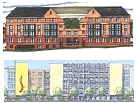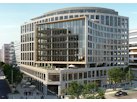|
| ||||||||||||||||||||
Please note that JDLand is no longer being updated.
peek >>
Near Southeast DC Past News Items: Nationals Park
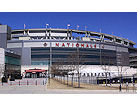
|
See JDLand's Nationals Park Project Page
for Photos, History, and Details |
- Full Neighborhood Development MapThere's a lot more than just the projects listed here. See the complete map of completed, underway, and proposed projects all across the neighborhood.
- What's New This YearA quick look at what's arrived or been announced since the end of the 2018 baseball season.
- Food Options, Now and Coming SoonThere's now plenty of food options in the neighborhood. Click to see what's here, and what's coming.
- Anacostia RiverwalkA bridge between Teague and Yards Parks is part of the planned 20-mile Anacostia Riverwalk multi-use trail along the east and west banks of the Anacostia River.
- Virginia Ave. Tunnel ExpansionConstruction underway in 2015 to expand the 106-year-old tunnel to allow for a second track and double-height cars. Expected completion 2018.
- Rail and Bus Times
Get real time data for the Navy Yard subway, Circulator, Bikeshare, and bus lines, plus additional transit information. - Rail and Bus Times
Get real time data for the Navy Yard subway, Circulator, Bikeshare, and bus lines, plus additional transit information. - Canal ParkThree-block park on the site of the old Washington Canal. Construction begun in spring 2011, opened Nov. 16, 2012.
- Nationals Park21-acre site, 41,000-seat ballpark, construction begun May 2006, Opening Day March 30, 2008.
- Washington Navy YardHeadquarters of the Naval District Washington, established in 1799.
- Yards Park5.5-acre park on the banks of the Anacostia. First phase completed September 2010.
- Van Ness Elementary SchoolDC Public School, closed in 2006, but reopening in stages beginning in 2015.
- Agora/Whole Foods336-unit apartment building at 800 New Jersey Ave., SE. Construction begun June 2014, move-ins underway early 2018. Whole Foods expected to open in late 2018.
- New Douglass BridgeConstruction underway in early 2018 on the replacement for the current South Capitol Street Bridge. Completion expected in 2021.
- 1221 Van290-unit residential building with 26,000 sf retail. Underway late 2015, completed early 2018.
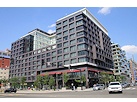
- NAB HQ/AvidianNew headquarters for National Association of Broadcasters, along with a 163-unit condo building. Construction underway early 2017.
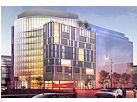
- Yards/Parcel O Residential ProjectsThe Bower, a 138-unit condo building by PN Hoffman, and The Guild, a 190-unit rental building by Forest City on the southeast corner of 4th and Tingey. Underway fall 2016, delivery 2018.
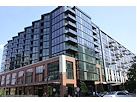
- New DC Water HQA wrap-around six-story addition to the existing O Street Pumping Station. Construction underway in 2016, with completion in 2018.
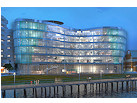
- The Harlow/Square 769N AptsMixed-income rental building with 176 units, including 36 public housing units. Underway early 2017, delivery 2019.
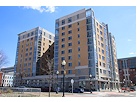
- West Half Residential420-unit project with 65,000 sf retail. Construction underway spring 2017.
- Novel South Capitol/2 I St.530ish-unit apartment building in two phases, on old McDonald's site. Construction underway early 2017, completed summer 2019.
- 1250 Half/Envy310 rental units at 1250, 123 condos at Envy, 60,000 square feet of retail. Underway spring 2017.
- Parc Riverside Phase II314ish-unit residential building at 1010 Half St., SE, by Toll Bros. Construction underway summer 2017.
- 99 M StreetA 224,000-square-foot office building by Skanska for the corner of 1st and M. Underway fall 2015, substantially complete summer 2018. Circa and an unnamed sibling restaurant announced tenants.
- The Garrett375-unit rental building at 2nd and I with 13,000 sq ft retail. Construction underway late fall 2017.
- Yards/The Estate Apts. and Thompson Hotel270-unit rental building and 227-room Thompson Hotel, with 20,000 sq ft retail total. Construction underway fall 2017.
- Meridian on First275-unit residential building, by Paradigm. Construction underway early 2018.
- The Maren/71 Potomac264-unit residential building with 12,500 sq ft retail, underway spring 2018. Phase 2 of RiverFront on the Anacostia development.
- DC Crossing/Square 696Block bought in 2016 by Tishman Speyer, with plans for 800 apartment units and 44,000 square feet of retail in two phases. Digging underway April 2018.
- One Hill South Phase 2300ish-unit unnamed sibling building at South Capitol and I. Work underway summer 2018.
- New DDOT HQ/250 MNew headquarters for the District Department of Transportation. Underway early 2019.
- 37 L Street Condos11-story, 74-unit condo building west of Half St. Underway early 2019.
- CSX East Residential/Hotel225ish-unit AC Marriott and two residential buildings planned. Digging underway late summer 2019.
- 1000 South Capitol Residential224-unit apartment building by Lerner. Underway fall 2019.
- Capper Seniors 2.0Reconstruction of the 160-unit building for low-income seniors that was destroyed by fire in 2018.
- Chemonics HQNew 285,000-sq-ft office building with 14,000 sq ft of retail. Expected delivery 2021.
1142 Blog Posts Since 2003
Go to Page: 1 | ... 53 | 54 | 55 | 56 | 57 | 58 | 59 | 60 | 61 ... 115
Search JDLand Blog Posts by Date or Category
Go to Page: 1 | ... 53 | 54 | 55 | 56 | 57 | 58 | 59 | 60 | 61 ... 115
Search JDLand Blog Posts by Date or Category
There has been much discussion by residents and city officials over the impending "apocalypse" of traffic and parking congestion with the opening in April of the new ballpark. Residents not only in Near Southeast (all 400 of you) but in Southwest and on Capitol Hill have been waiting for the city to announce exactly how on-street parking will be handled during games, as there is great concern as to whether residents will still be able to park on their streets and won't have to deal with hundreds or thousands of cars circling the neighborhoods looking for free parking.
It's been thought that the model used at RFK--special parking permit stickers for residents to put on their cars--would be ported over to the new ballpark area, but over the past few months council member Tommy Wells and his staff, along with DDOT, have been working on a pilot plan they hope could address not only the parking issues at the ballpark but also the parking problems seen on Capitol Hill along Pennsylvania Avenue, Barracks Row (Eighth Street), and the streets around Eastern Market. They are looking for ways to balance the needs of residents with the impact on businesses if parking is hard to come by, and are looking at a concept called "Performance Parking." Here's my five-cent summary:
"Retail" streets would have the hours of metered parking extended to seven days a week until late in the evening, and with the prices to park at the meters raised to a level that would discourage some people from arriving by car, opening up more spaces and reducing double-parking and congestion. The adjacent residential streets, now covered by Zone 6 parking rules that ostensibly only allow two hours of visitor parking during weekdays (but are dependent on the parking enforcement folks tracking the cars to know how long they've been there) would see the installation of meter kioskson one side of the street, where nonresidents could park for no more than two hours even until late in the evening and on weekends. (Residents could park on both sides of the street as long as they want.)
These rules would extend with slight tweaks to the streets around the ballpark: "Retail" streets in these areas would allow longer stretches of parking (four-plus hours), but would have rates for metered parking comparable to the amount charged in pay lots, to discourage ballpark-goers from believing that on-street parking would be any cheaper than what's available in existing lots and garages. And with the residential streets having meters that wouldn't allow parking for longer than two hours, most people going to three-hour-plus baseball games would avoid parking on those blocks.
In other words, these restrictions would tell visitors--park in a lot, or take Metro, or walk, or ride your bike, but don't expect to drive down and find a space for free on a street somewhere.
One other facet of this plan would be to use the revenue from these much higher on-street parking rates to pay the cost of the new kiosk-type meters (that cost about $7,800 a pop), the cost of the extra enforcement needed to make the plan work, and also improvements to the streets and the communities to make alternative modes of transportation more enticing (fixing sidewalks, adding bike racks, making bus shelters better, etc.).
This plan has been previewed for local businesses and the ANCs (today it was the media's turn), and it's hoped that a bill creating this special pilot project can start its path through the city council process in early January. Alas, this would not be enough lead time to get it all in place before Opening Day, so there will probably be some tumult during the early part of the season as the city tries to keep stadium visitors from taking over the residential neighborhoods.
You'll no doubt be reading much more about this idea over the coming months, and there will be public meetings and refinements and many words written about it all, I'm sure. And of course one other piece of the puzzle--the locations of the various lots where the Nationals will be directing season-ticket holders to park--has yet to be made public. Eventually Wells's office will release maps (perhaps soon) showing the streets that could be designated as retail or residential, along with other documents providing far more detail than what I've previewed here.
In the meantime, I'm going to do something I've never done in the nearly five years that I've been running this Near Southeast site--I'm going to open up the floor to comments about this idea, that then hopefully can be read by city officials and other residents to see what people's impressions are of the plans. But be forewarned, if this little low-tech experiment goes off the rails and people start getting out of control, I'll close it down and won't be inclined to give it another shot. So behave. Of course, you'll be commenting on something you probably need to learn much more about to truly be informed, but when does that ever stop anyone on the internet?
UPDATE: Here's a story from the Post on Wells's parking plan. " 'The ballpark visitors are going to be very tempted to look for cheap parking' on city streets, said Neha Bhatt, a planner in Wells's office. 'We've got to get that out of people's head that free parking exists here.' " The story also reminds me to mention that plans are to make Buzzards Point off-limits to on-street parking during ballgames (though it's likely some cash lots will be built there).
Also, there's going to be an Committee on Economic Development oversight roundtable on "Parking and Traffic Plan for the Nationals' Stadium" on Jan. 11 at 10 am. (It was originally scheduled for this Monday, the 17th, but they felt like there hadn't been enough public notice. I'll say--I hadn't even heard about it!)
UPDATE II: The WashTimes piece on the plan.
|
Comments (0)
|
The Atlanta Journal-Constitution is reporting that the long-rumored debut of Nationals Park on the special March 30 ESPN Sunday night season opening broadcast has gotten its last batch of approvals (from the players association) and is now a "go." (No official confirmation yet.)
UPDATE: The Post is reporting that this is a done deal as well, though still without confirmation from MLB.
|
More posts:
Nationals Park
|
While the main stories in the media coming out of today's WMATA board meetings will no doubt be the approval of fare increases, my focus was on other action items:
* Without discussion, the board voted to execute the sale announced back in June of the 5,612-sq-ft WMATA land at New Jersey and M to "NJA Associates" (aka Donohoe). For more detail, you can read my entry from last week about how this land fits in with Donohoe's plans for 1111 New Jersey Avenue.
* The board also approved the plan to build a new 114-bus garage at DC Village to replace the Southeastern Bus Garage at Half and M, contingent on not only a series of land transfers between the city and WMATA but also on the $69.25 million sale of the current bus garage site to Akridge, since the proceeds from that sale are necessary to both fund the new garage and the interim costs associated with continuing the old garage's functions until the new site is ready. Marion Barry spoke forcefully in support of the move, speaking not only of his constituents' strong support for building a new facility in Ward 8 but also that the current garage is "in the way of progress," situated as it is smack in the middle of the fledgling Ballpark District.
No timeframe for closing the current garage was discussed by the WMATA board, and it was only mentioned in passing that Monument Realty's litigation surrounding the sale of the old garage is still pending. WMATA employees who I've talked to at Half and M in recent days have said they were initially told the garage would be vacated this month, then were told it would be next month, and are now being told that there's no firm date planned.
If indeed WMATA is not planning to close the garage before Opening Day, it will need to come up with plans for moving their buses in and out of that space while dodging tens of thousands of pedestrians, or how they'll shut down the garage during game times. It would also mean that the garage's possible use as a temporary parking facility would be off the boards.
|
More posts:
1111 New Jersey/Insignia on M, West Half St., Metro/WMATA, Monument Valley/Half St., Square 743N, Nationals Park
|
Here's your dreary Thursday morning reading material:
* The Post writes about the labor disputes at the ballpark: "Labor leaders are defending the hiring practices at the construction site of the new Washington Nationals ballpark, saying that efforts to give jobs to D.C. residents have been an 'unequivocal success.' [...] [T]he leader of the Metropolitan Washington Council of the AFL-CIO said the project has been successful in hiring District workers. The letter disputed criticism from some local activists that the ballpark had not come through with jobs for city residents."
* The Examiner, NBC4, WBJ, and the Post write about the presentations last night of the four finalists' plans for redeveloping Poplar Point. Channel 4 also includes a slideshow of the designs and links to information on each plan's community benefits. Apparently one of the propsals includes "an aerial tram that would carry passengers across the river to the new baseball stadium." And Now, Anacostia has some bullet points on the various presentations as well.
* Also from the Post, a District Extra piece on last week's council hearing on the Taxation Without Representation tote boards that some city council members want to put on the Wilson Building and the stadium. (Here's my report on the hearing.)
* My Ballpark and Beyond column in the Post adapts my recent blog posts on the sale of St. Matthew's, the Capper PILOT bill, and the recent Capitol Riverfront BID meeting.
* UPDATE: I should also add this opinion piece in the Examiner by Phil Wood on his impressions of the new ballpark. "If you asked me to describe the place in a single word, I'm ready to answer. Compelling."
|
|
I just got back from ANC 6D's monthly meeting, where the commissioners voted 6-0 (with one abstention) to support the application by Volume Services Inc. for a "CX Arena" liquor license at the new ballpark. This single license would cover all concessions at the stadium, including kiosks, restaurants and boxes, and at individual seats.
The ANC had asked representatives of the Nationals and concessionaire CenterPlate to discuss potential issues with alcohol sales at the ballpark in greater detail, but it became a more freewheeling discussion between the team officials, who are trying to assure nearby residents that the team wants to be a good neighbor, and the commissioners, who feel that the community has received very little communication up to now from the DC Sports and Entertainment Commission and other city agencies about traffic, parking, and other stadium-related issues.
Nationals senior vice president for business affairs Michael Shapiro spoke a number of times of the Nationals' "sincere desire to become a member of the community," and that they want the neighbors "to be proud" of the new ballpark. Shapiro and director of ballpark operations Matthew Blush offered to meet on a regular basis with community leaders, which appeared to be well received by the commission's vice chair Andy Litsky, who described the ANC's dealings with the Sports and Entertainment Commission on ballpark-related issues over the past two years as a "horror show."
Greg McCarthy, who is senior director of the Nationals' ballpark district dealings, spoke about parking and traffic issues, explaining that season ticket holders will be assigned to specific lots and will be given detailed instructions on the correct routes to use, to prevent the cut-through traffic and circling for on-street parking that the team says it will be actively discouraging. The commissioners made clear that parking issues remain a huge concern for residents, and that they want to hear specifics soon about how gameday parking will be handled.
Shapiro and Blush described upcoming outreach efforts such as bringing neighborhood kids to the ballpark for batting practice, getting jobs at the stadium for local residents, and having ambassadors and security outside the ballpark itself before and after games as part of making "the building work for the community." Commissioners and audience members were particularly interested in job opportunities at the ballpark, with the hope that the Nationals will go beyond "hanging out a sign" to actively recruit nearby residents.
As for the liquor license, Shapiro indicated that most of the rules in place at RFK (such as no alcohol sales after the seventh inning) would be in place at the new ballpark, and suggested that the Verizon Center would be used as a guide for how to handle alcohol-related issues for non-baseball events such as concerts. (I'm guessing that liquor sales might not be an issue at the first non-baseball event at the new stadium, which is scheduled to be the April 17 mass by Pope Benedict XVI.)
With some concerns that protesting or otherwise hindering this application might spur the sports commission or the city council to issue a liquor license outside of the city's Alcohol Beverage Control jurisdiction, the ANC gave its support. The license hearing is scheduled for Jan. 2.
In the meantime, the DCSEC, the Nationals, and community leaders have another meeting scheduled for Dec. 19.
|
|
The Post has a story this morning on the concerns of residents about how stadium traffic is going to impact the neighborhoods around the ballpark. "City officials and Nationals executives have been working on plans for new traffic patterns and parking for about 5,000 cars expected at most games. But neighborhood activists said few details about those plans have been made public. And what they have heard has made them more concerned as they watch the mammoth stadium rise above the skyline." Plans for free parking at RFK still have not been finalized, nor have announcements yet been made as to where season ticket holder parking lots will be: "Not knowing the parking sites has left neighbors concerned that they can't predict which streets will be most congested or whether they will be satisfied with the team's plans." Street parking will be limited to residents, as at RFK, though the final boundaries of the restricted areas have not been announced (an early draft of the parking zone, as well as links to the full the Draft Transportation Operations and Parking Plan, are on my Stadium Parking page.)
|
More posts:
parking, Nationals Park
|
The Legal Times blog has an update on lawsuits over the properties seized by the city via eminent domain to make way for the ballpark: "Originally, 24 landowners challenged the District's appraisal of their property, sending the city and the landowners to D.C. Superior Court for more than two years. But in early November, a second round of mediation talks resulted in settlements for all but four of the cases, and the settlements were finalized with the District in November." The post mentions that one settlement resulted in a $51 million payment for four of the parcels after the city initially offered $33 million. You can see the original offers and assessments here; finding out the final prices is a bit more difficult.
|
More posts:
Nationals Park
|
Voice of the Hill has posted an article on the status of parking and traffic plans for the new ballpark, which boils down to: team and city officials say it will be okay, neighborhood residents and activists say it won't. The team, as it always has, will be emphasizing Metro as the best way to get to the stadium, and is apparently working on plans for guiding people who drive to the games on the "right way" to get to the various parking lots that will be available. As for the infrastructure work: "Street and sidewalk work is on schedule, and the Navy Yard Metrorail station will be ready to use, but possibly unfinished, by opening day, said Ken Laden, the Transportation Department's associate director for transportation policy and planning. Laden also said the agency is working with Ward 6 Council member Tommy Wells on new street-parking regulations that would discourage on-street parking during games."
According to the Voice there was a community meeting about baseball-related traffic concerns on Nov. 28, which I didn't see announced anywhere. But apparently there's another one scheduled for Dec. 19 at 6:30 pm at Southeastern University.
|
More posts:
Metro/WMATA, parking, Nationals Park
|
Construction and architecture geeks will be interested to read the cover story of the latest issue of the Engineering News-Record, which is an in-depth chronicle of the fast-track design/build approach used to build Nationals Park in 23 months, which if completed on time will break the speed record for major-league ballpark contruction. There's also a sidebar on how the stadium may be the first major league sports facility to be LEED certified.
|
More posts:
Nationals Park
|
If you're interested in the "Taxation Without Representation Federal Tax Pay-Out Message Board Installation Act of 2007" (Bill 17-0028) that would put electronic tote boards on the Wilson Building and the ballpark showing the federal taxes that District residents pay while still having no votiing representation in Congress, the council hearing is now underway, which you can watch on DC Cable 13 or via streaming video. I wrote about it a few days back, and today's WashTimes gives some detail on what the bill calls for. I'll have more after the hearing is finished.
Post-Hearing UPDATE: The first two hours of the hearing were more of a general discussion about the current state of DC voting rights, which included multiple mentions that the $3 billion that District residents pay each year in federal taxes is higher than the tax burdens of seven states, and nearly as high as four others. It wasn't until DC Sports and Entertainment Commission CEO Greg O'Dell started his testimony that the issue of whether the council even can legislate the addition of a sign to the ballpark came up.
Because the lease agreement signed by the team and the city states that the Nationals control the signage on the stadium's interior, exterior, and perimeter, the DCSEC's outside counsel feels that this tote-board bill "could conflict" with the lease. O'Dell took a pretty tough batch of questions from council chair Vincent Gray about whether O'Dell himself thinks this sign is a good idea--he punted a number of times, saying he wanted to be "mindful of the process" and "respectful of my board" until Gray finally pinned him down to admit that he thinks it's a good idea. O'Dell did say that the sports commission would move to implement whatever the council decides.
Chairman Gray commented a few times on his unhappiness that the citizens of the District are paying $611 million for the ballpark but can't put this sign up without going to the Nationals for approval. As to the issue of whether the sign's costs would violate ballpark cost cap, O'Dell indicated that if the sign cost less than $100,000 that he didn't think it would cause any cap problems.
So, one would imagine that there will now be some intense negotiations between the city and the Nationals to get their approval for the sign. But given the response that Stan Kasten gave to Mark Plotkin (described here and here) about the moving the DC Taxation Without Representation sign that currently hangs at RFK to the new ballpark, it will be interesting to see how this tote-board discussion turns out.
|
More posts:
Nationals Park
|
1142 Posts:
Go to Page: 1 | ... 53 | 54 | 55 | 56 | 57 | 58 | 59 | 60 | 61 ... 115
Search JDLand Blog Posts by Date or Category
Go to Page: 1 | ... 53 | 54 | 55 | 56 | 57 | 58 | 59 | 60 | 61 ... 115
Search JDLand Blog Posts by Date or Category



